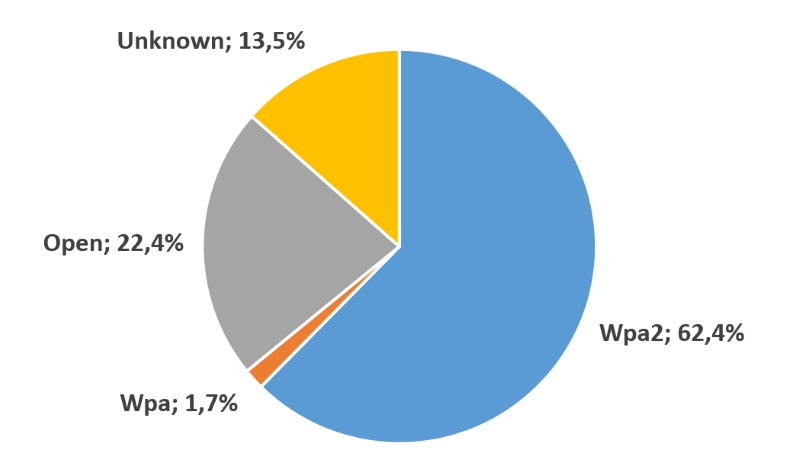Don't Trust WiFi Hotspots in 2022 FIFA World Cup Host Cities, Warns Russia's Kaspersky Lab


The 2018 FIFA World Cup starts this night, and football game fans around the world will be joining in on the action. While nearly of us will exist watching the game on our televisions or online, there are plenty of diehard fans that take gone all the mode to Russia to cheer for their team. However, if recent reports are to exist believed, these fans improve be careful when connecting to the local Wi-Fi hotspots.
As reported past Russia-based cyber security company Kaspersky Lab in an official blog post, over 20% of Wi-Fi hotspots in Earth Loving cup host cities accept cybersecurity issues. The visitor states that seven,176 of approximately 32,000 public Wi-Fi networks in these cities do not use traffic encryption. This makes them potentially dangerous for utilise by football fans visiting the cities, every bit those with the know-how can snoop on their online activity.
These findings are based on an analysis of public Wi-Fi spots in 11 FIFA World Cup 2018 host cities, including Saransk, Samara, Nizhny Novgorod, Kazan, Volgograd, Moscow, Ekaterinburg, Sochi, Rostov, Kaliningrad, and St. petersburg. As per the results, many of the wireless admission points do not have encryption and hallmark algorithms that are essential for Wi-Fi networks to remain secure. Hackers merely need to be located near an admission point to intercept network traffic and get confidential data from unwitting or unprepared users.

Equally for the bodily figures, the cities with the highest percentage of unreliable WiFi networks are Petrograd (37%), Kaliningrad (35%), and Rostov (32%). On the other hand, relatively small-scale towns such as Saransk and Samara have the safest networks with 10% and 17% WiFi spots open. Virtually two-thirds of all public Wi-Fi networks in these locations use the Wi-Fi Protected Access (WPA/WPA2) protocol family unit for traffic encryption, a protocol which is considered to be 1 of the most secure for Wi-Fi use.
"The lack of traffic encryption, coupled with large-calibration events – like the FIFA World Cup – make wireless Wi-Fi networks a target for criminals who want easy admission to user information. Despite about two-thirds of all access points in FIFA World Cup host cities using encryption based on the most secure Wi-Fi Protected Admission (WPA/WPA2) protocol family unit, even these access points can't be considered secure if the password is visible to everyone.FIFA Globe Cup 2018 has confirmed that the effect itself is secure – simply users should exist aware that clearly, its host cities' public Wi-Fi hotspots are ofttimes not," said Denis Legezo, Senior Security Researcher at Kaspersky Lab.
Additionally, the company suggests that fans visiting Russia and planning to make apply of these public WiFi networks should connect via a Virtual Private Network (VPN) whenever possible since it offers levels of encryption not present on the open up WiFi. Information technology is also recommended that yous use these networks for simple browsing and not for payments or banking transactions, or fifty-fifty sensitive work sites that require your official countersign. Lastly, yous should enable the "always apply a secure connectedness" (HTTPS) option in your device settings to ensure you're visiting websites over a secure medium.
Source: https://beebom.com/dont-trust-the-wifi-hotspots-in-2018-fifa-world-cup-host-cities/
Posted by: hallmarkhimentrapsed43.blogspot.com


0 Response to "Don't Trust WiFi Hotspots in 2022 FIFA World Cup Host Cities, Warns Russia's Kaspersky Lab"
Post a Comment